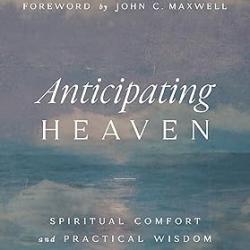This post is part of a series walking through the second volume of Abraham Kuyper’s Common Grace
If you’ve ever wondered what insurance has to do with theology and the Christian life, wonder no longer because Abraham Kuyper is going to tell us in great detail. Specifically he’s going to spend the next seven chapters telling us about insurance. And this makes sense–insurance was a newish thing, and Kuyper wants to think carefully about what effect it will have on Christian ethics. Some are saying that insurance is sinful, others are “infatuated with it.” (624) We should not have this divide! And of course we need to remember that our opinion and our neighbor’s opinion is not the standard. Only God’s opinion matters here.
So we have to ask, is insurance commanded or prohibited? Or is it a matter of Christian freedom, and only a tool that we may use or not? There must be differences of opinion for now–we don’t want to jump to the conclusion or just go with the cultural flow. Instead we must follow Scripture.
Of course if a new thing is sinful, we must stay away. Likewise if it is a duty we must obey. Nor must we allow discretion if using insurance is a command–there aren’t ‘higher’ and ‘lower’ forms of holiness. In all of this we must keep a watch on our own motivations here.
We must likewise be careful not to confuse “assurance” with “insurance”, though both have to do with certainty and stability. We shouldn’t let insurance distract from our pursuit of assurance. This means we must not be “fanatical about insurance.” Spiritual stuff must always come first!
There are three objections that we’ve seen to taking out insurance:
- It is an attempt to “resist the trials” that God sends our way;
- It will undermine faith by removing fear and the need for “God’s fatherly care.”
- The industry is out for money and people are trying to cheat the system–even committing arson and murder.
In response to the first objection, we should remember that the thing insurance is trying to accomplish is the purpose of cities in the first place. For that matter, even housing has the goal of resisting the trials of the world. Cain’s city and his descendants show this. And while city and rural life are shot through with sin, cities seem to be more confident in their own strength and consequently sin seems to flourish there. But does this search for safety that seems to lead to sin result in insurance being sinful? (Or cities, for that matter?)
When we see how insurance presents itself as security, we must further admit that there is some undermining of the faith going on with insurance. Still, it is an argument, but not final proof.
In response to the second objection, it is only partly true that insurance undermines our faith by removing our fear. A true child of God doesn’t replace God with insurance. Still there is an effect on us. Just as having a police department makes us more secure at night, so insurance might be that kind of blessing. Likewise travel used to be much more dangerous. Now it’s almost completely safe. There are many examples of this in the history of our civilization, and these are clearly not sinful.
Kuyper’s response to the third objection will come in the next chapter.
Dr. Coyle Neal is co-host of the City of Man Podcast an Amazon Associate (which is linked in this blog), and an Associate Professor of Political Science at Southwest Baptist University in Bolivar, MO













